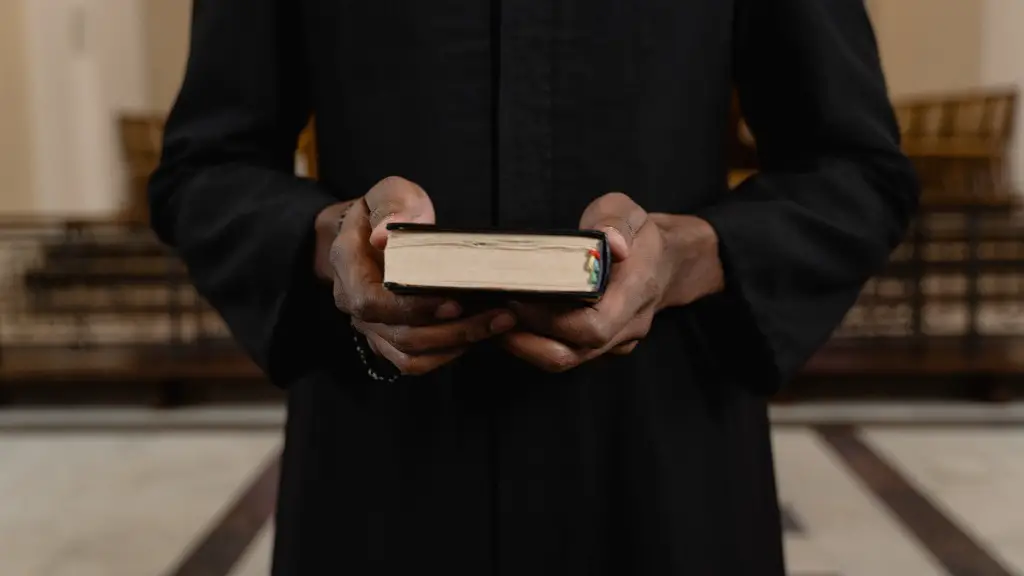The Election of Abraham
The Bible speaks of “The Chosen Ones”, referring to those special individuals who were designated by God to fulfill a specific purpose and achieve divinely inspired objectives. The first of these chosen ones was Abraham, the father of the great nation of Israel. In Genesis 12:2 it is written: “I will make you into a great nation, and I will bless you; I will make your name great, and you will be a blessing.” God told Abraham that his descendants would become a numerous people, inheriting a great land and enjoying the many blessings of belonging to the chosen nation.
In addition to the physical blessings that would come to his descendants, Abraham was also promised spiritual blessings. In Genesis 12:3 it says: “All people on earth will be blessed through you.” This would be the ultimate blessing of God’s story of redemption, as all people on earth would be able to find grace and forgiveness through the death of His Son, Jesus Christ.
The Election of Moses
The second of the chosen persons in the Bible is Moses. The Lord spoke to Moses from the burning bush in Exodus 3:7-10, saying: “I will be with you; and this will be the sign to you that it is I who have sent you: when you have brought the people out of Egypt, you will worship God on this mountain.” This signified the powerful work that God was to perform through Moses, in the deliverance of His people from the bondage and tyranny of Egypt.
Moses was instructed to go to Pharaoh and to demand the release of His people, Israel. In Exodus 3:12, it says: “He said, ‘I am sending you to Pharaoh to bring My people the Israelites out of Egypt.’” This signified that the Lord was entrusting to Moses the task of leading His people back to their rightful homeland, the Promised Land of Israel. This was a tremendous responsibility, and one that Moses felt inadequate to perform. Nevertheless, by the power of God, he would go on to lead the Israelites in triumph from Egypt to the Promised Land.
The Election of David
The third of the chosen ones is David. In 1 Samuel 16:13 it states: “The Lord said, ‘Rise and anoint him; he is the one.’” This signified God’s unique choice of David, to lead the nation of Israel into a new era of greatness, in which the nation would be unified and secure. David was also chosen to represent the Lord, as His anointed King, and emblem of what was to come through the Messiah.
Via the lineage of David, God was setting the stage for the ultimate fulfillment of His promises. In 1 Samuel 16:13 it says: “He will be a man after My own heart; he will carry out My every wish.” David, would become a great King, and through his kingship would arise a lineage that would bear witness to God’s faithfulness and fulfill His promises for the coming of the Messiah.
The Election of Jesus
The fourth of the chosen ones is Jesus. In Mark 1:11 it reads: “A voice came from heaven, ‘You are my beloved Son; with you I am well pleased.’” This signified the ultimate election of Jesus as the Messiah and Saviour of the world. Through His life, death and resurrection, Jesus would accomplish the ultimate redemption of God’s people. In this way, He would become the fulfillment of all the promises of God, as stated in Isaiah.
God had chosen Jesus even before the foundation of the world, being the Lamb of God who was to take away the sin of the world (John 1:29). Because of Him, all people who have faith in Him have been given the opportunity of salvation. The election of Jesus was a demonstration of God’s great love for us, and of His desire to make possible a way for us to be reconciled to Him.
The Election of Paul
The fifth of the chosen ones is Paul. In Acts 26:17-18 it reads: “I will rescue you from your own people and from the Gentiles. I am sending you to them to open their eyes and turn them from darkness to light, and from the power of Satan to God, so that they may receive forgiveness of sins and a place among those who are sanctified by faith in Me.” This signified God’s powerful selection of Paul to be a messenger of the Gospel of Jesus Christ.
Paul was uniquely gifted by God with a powerful knowledge of the Scriptures and an extraordinary ability to lead God’s people. Through his writings, he would go on to spread the Gospel of Jesus Christ to the gentiles and lay the foundation of the early church. His powerful testimony and unique ministry would stand as a sign of the power of God’s grace and mercy.
The Election of Peter
The sixth of the chosen ones is Peter. In John 21:16-17 it states: “And the Lord said, ‘Simon, son of John, do you love me more than these? Yes Lord, you know that I love you. Then feed my lambs.’” This signified the election of Peter to be the leader of the early church. As Jesus said to him, He was to be the rock upon which the church would be built (Matthew 16:18).
Peter was entrusted with the ministry of oversight of the early church, and it was through his powerful teachings and genuine faith that many souls were brought to salvation. It was Peter’s leadership and devotion to the cause ofJesus Christ which enabled the church to grow and bear witness to the power of the Gospel.
The Election of John
The seventh of the chosen ones is John. In John 21:20-21 it says: “And He said to him, ‘Follow me!’ Peter turned and saw that the disciple whom Jesus loved was following them.” This signified the election of John to be the disciple closest to Jesus. John would serve as a faithful companion and witness to the events of Jesus’ life, and through his writings, would go on to share with all the world the life-changing truths of the Gospel.
John was a powerful force within the early church, and through his writings, he enabled all to join in the vision of God’s redemption. His Gospel was a powerful sign of God’s love for us, and of His desire to bring salvation to all who would believe.
The Election of Timothy and Barnabas
The eighth and ninth of the chosen ones are Timothy and Barnabas. In Acts 16:1-3 it says: “Paul went to Derbe and then to Lystra, where he met a disciple named Timothy. Paul knew that the Gentiles would accept Timothy, so he took him along. Paul and his companions traveled through the area, proclaiming the Good News and appointing elders in every church.” This signified the election of Timothy and Barnabas to be Paul’s faithful companions on his missionary journeys.
Timothy and Barnabas accompanied Paul on his journeys from Antioch to Derbe and Lystra, helping to spread the Gospel of Jesus Christ to the Gentiles. They were courageous men of faith, and became a part of the great mission to preach the Gospel far and wide. As such, they played a vital role in the spread of the Gospel and the establishment of the church.
The Election of Stephen
The tenth of the chosen ones is Stephen. In Acts 6:3-5 it states: “So now select seven men who are well respected and are full of the Spirit and of wisdom. We will appoint them to become responsible for this task. So the congregation chose Stephen, a man who was full of faith and the Holy Spirit, and Philip, Prochorus, Nicanor, Timon, Parmenas, and Nicolas from Antioch, who had become a convert to Judaism.” This signified the election of Stephen to serve as the first martyr for the cause of Jesus Christ.
Stephen was a man of great faith and courage, and it was through his sacrificial death that the early church was reestablished and the Gospel was reborn. The faithfulness of Stephen stood firm against all of the persecution and misunderstanding of the time, and through his life, he demonstrated the power of God’s love and mercy.
The Election of Phillip
The eleventh of the chosen ones is Phillip. In Acts 8:5-8 it says: “Philip went down to the city of Samaria and proclaimed the Messiah to them. People with unclean spirits were all healed, and many others who were paralyzed or lame were healed. So there was great joy in that city. When the apostles in Jerusalem heard that Samaria had accepted God’s Word, they sent Peter and John to preach to them. After they had come to Samaria, they prayed for the new believers to receive the Holy Spirit.” This signified the election of Phillip to be an apostle of the Gospel of Jesus.
Phillip was a remarkable evangelist, and through his zeal and commitment to the cause of Jesus, he spread the Gospel far and wide. In Samaria he demonstrated the power of the Gospel to transform lives, bringing healing and joy to a region torn by darkness. In this way, Phillip stood as a powerful witness to the power of the Gospel and the grace of our Lord.


